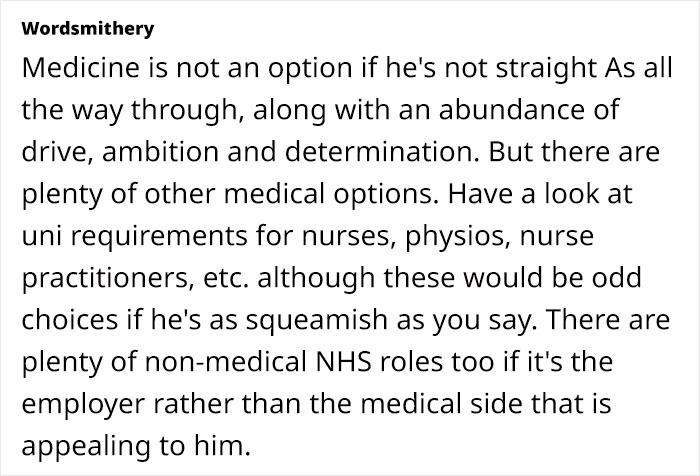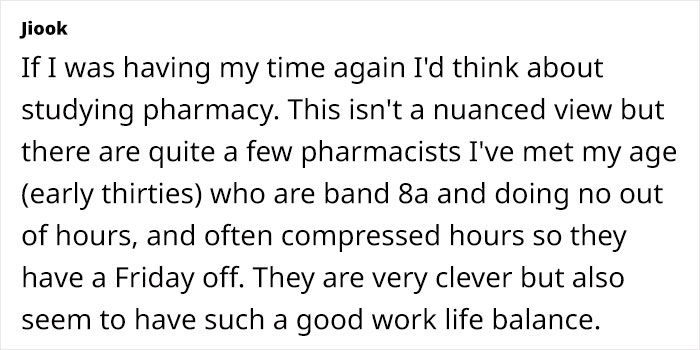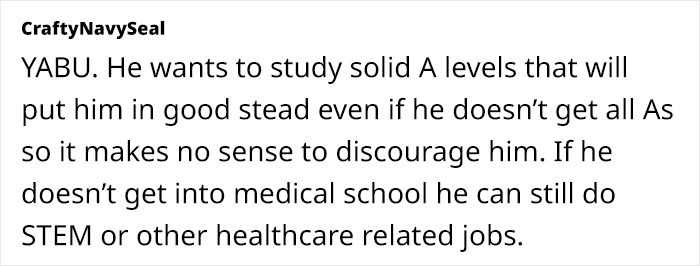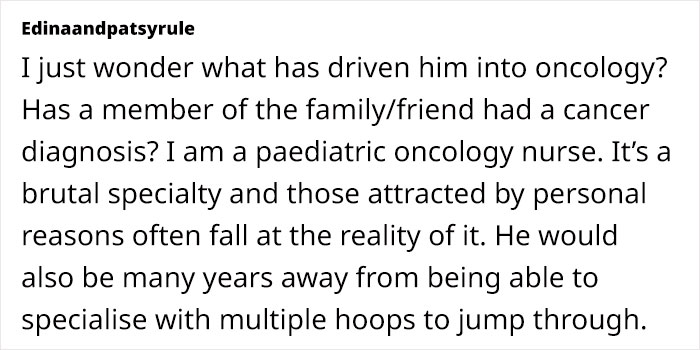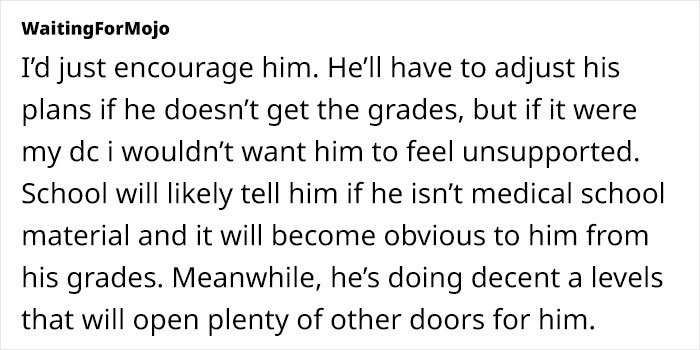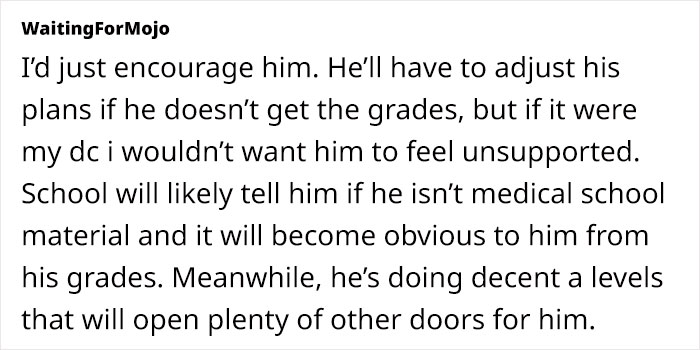When we are just choosing our life path in our youth, we often have to make compromises: compromises caused by our learning ability, financial capabilities, and all sorts of other factors. But youth is different from any other age in that sometimes it doesn’t accept compromises…
Here is the user WorldMap24, the author of our story today, who also faced a similar case when she and her teen son began discussing options for his further education. In short, the boy dreams of becoming an oncologist, and his mom has serious doubts… no, not in her son himself, but in the various circumstances around this.
More info: Mumsnet
The author of the post is a mom of a high-schooler who is choosing his options for further education now, aspiring to become an oncologist

Image credits: freepik / Freepik (not the actual photo)
However, the mom has some serious concerns about this path for her son’s education



Image credits: WorldMap24

Image credits: Jeswin Thomas / Pexels (not the actual photo)
Firstly, the boy is a good student but his grades are still not that high, and secondly he doesn’t quite enjoy all of the disciplines required




Image credits: WorldMap24

Image credits: Andy Barbour / Pexels (not the actual photo)
And the last but not the least, the boy is a frequent fainter, so mom doubts he could cope with it while studying and then working



Image credits: WorldMap24
So the lady is in two minds on whether to dissuade the son or to encourage him to chase his dream
So, the Original Poster (OP) has a schooler son in year 11 (the author lives in the United Kingdom) and they are currently thinking about continuing his education next September, because the applications need to be in by the upcoming January.
And here the mom and son have a problem – the boy already announced several months ago that he wants to become an oncologist and, accordingly, go to medical school. The parents discussed other options of working in the National Health Service with him, such as dietician, physiologist and pharmacist, but the teen definitely wants to become a doctor.
Well, the mother has some concerns about this. Firstly, her son’s grades – they are not as excellent as required. That is, the boy is a good student, but not brilliant. Secondly, for a medical career, you need to choose in-depth study of biology, chemistry and math. And of these three disciplines, the boy really enjoys biology only.
Finally, a medical education implies that a student will sooner or later encounter someone else’s blood and everything related. And the author’s son is a fainter, as the mother admits. For example, he tends to faint during injections. According to her, this is a family trait – the OP herself has noticed something similar in herself more than once.
So the woman is afraid that her son, faced with the harsh reality of medicine, will sooner or later retreat and, thus, lose precious time and resources. However, she’s also hesitant to dissuade her son from his dream (though she herself isn’t sure whether it is a dream or a short-term passion) – after all, it is the ability to dream that makes us human in many ways.

Image credits: Racool_studio / Freepik (not the actual photo)
“In fact, many of us often have a problem with choosing our career path, and the choice made in early youth is not always the only right one,” says Volodymyr Nemertsalov, a school teacher and principal from Odessa, Ukraine, whom Bored Panda asked for a comment here. “That’s why I can easily understand the situation in this family.”
“In any case, if getting a degree here involves serious financial investments from the family, perhaps it’s worth thinking again about how ready this young man is to continue his education in this particular field. In the end, he will still be able to make up for the time, but he will hardly be able to make up for the money spent.”
“After all, medicine is an incredibly broad field, and there are plenty of specialties that are not directly related to the things that make him faint. In addition, there are specialists who can provide career guidance for a teenager. So if I were his mother, I would advise seeking professional advice. That would be the best thing,” Volodymyr concludes.
Folks’ opinions in the comments to the original post were also divided. Some believe that a passion for a chosen medical specialty can disappear as quickly and unexpectedly as it actually appeared. “Have a look at uni requirements for nurses, physios, nurse practitioners, etc,” someone aptly wrote. “There are plenty of non-medical NHS roles too.”
Others sincerely believe that having a dream is cool and noble, and urge the mom to simply encourage her son in the chase for his dream. “He’ll have to adjust his plans if he doesn’t get the grades, but if it were my [children] I wouldn’t want him to feel unsupported,” another responder said. So which point of view do you, our dear readers, lean more towards?
The internet was very divided on this case: some folks suggest encouraging him to pick another healthcare specialty, but some just urge mom to support the son’s dreams
